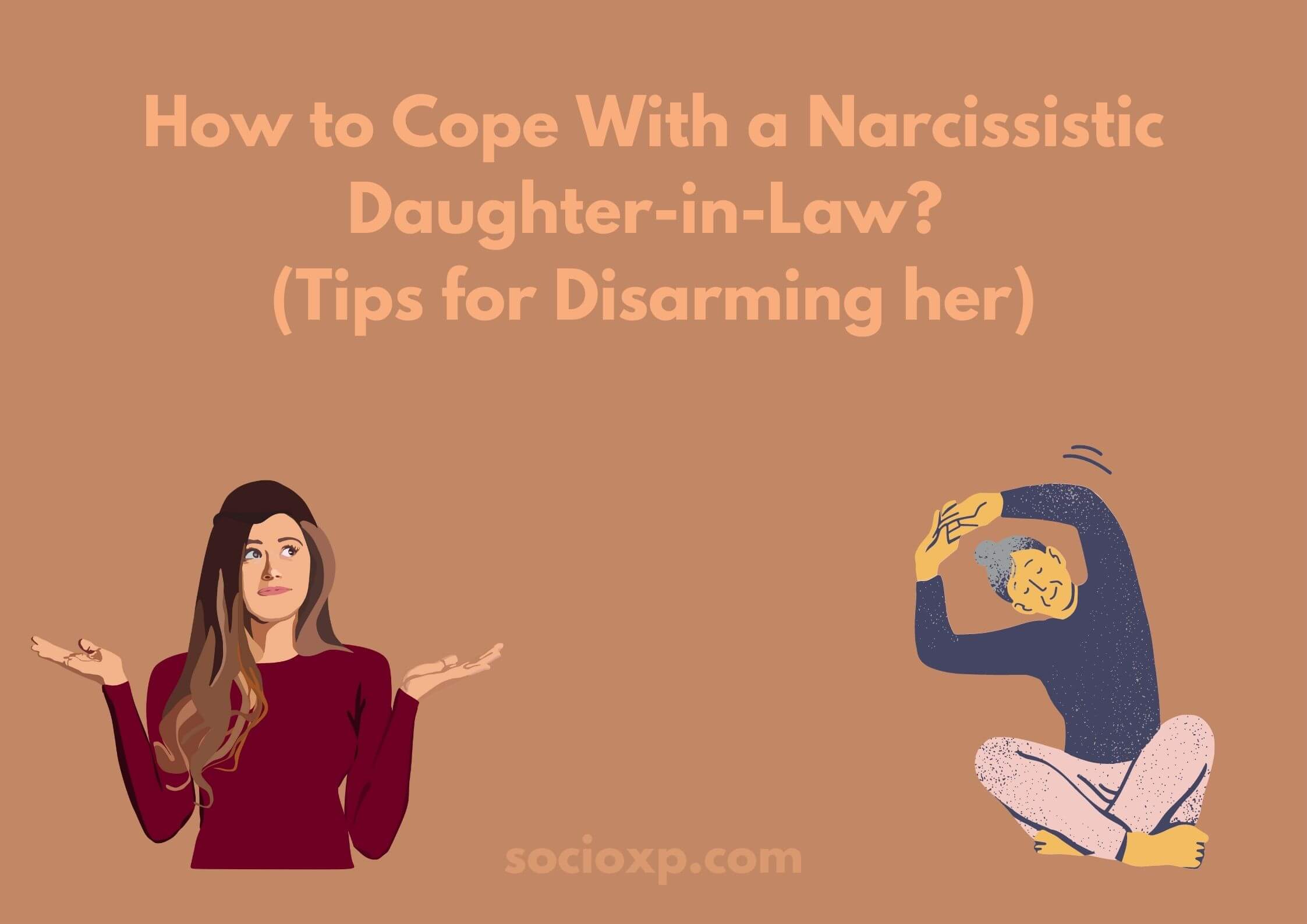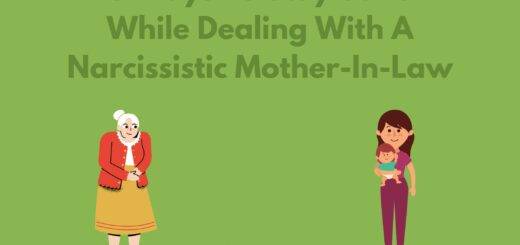Am I a Narcissist or a Codependent? (Reality Check)
Am I a Narcissist or a Codependent? If you are struggling to figure out whether you are suffering from a mental health disorder or you are just a codependent person, then this article is the correct place for you as you can clear your confusion here regarding the same.
If you are unable to distinguish between the personality of a third person, or you are quizzing your own personality and getting confused whether or not you are a narcissist, or just a codependent individual who is struggling to find out their personality but unable to do so due to hazy clouds of confusion. So how should you find the real difference or find out the answer to the question? Let us discuss that further in the article.
What is a Narcissist?
Characteristics of a Narcissist
Narcissists possess some traits or characteristics that make them a little hard to deal with. Some peculiar narcissistic traits include,
- Lack of sensitivity and empathy.
- Are self-centric.
- Blame others for your mistakes.
- Have unhealthy relations.
- Arrogance and anger is your first reaction to any problems.
- Hate changes and also cannot take them well.
- Are emotionally unstable and unavailable.
- Takes advantage of others easily.
- Are abusive.
- Lack of self-awareness and self-reflection.
- Always expect more from others.
- Boosted sense of self-importance.
- Obsession with image and reputation.
- Tendency to manipulate others mostly by gaslighting them.
- Preoccupation with fantasies of power, success, looks, and money.

What is a codependent?
A codependent is a person who is too much reliant on another person for their emotional, physical, and psychological well-being. They have a little difficulty in setting boundaries, saying no to something or someone, and also making important decisions for themselves. They always tend to prioritize other people’s needs over theirs and often feel responsible for other person’s happiness and well-being. They simply think about other people’s needs, feelings, and emotions way too much and also ignore their own feelings in that case. In many cases, they also struggle with low self-esteem, fear of displeasing or upsetting others, and a constant fear of abandonment. They constantly fear being left alone and hence they do everything to keep others pleased.
Characteristics of a Codependent
Some traits or characteristics of a codependent are as follows,
Low self-esteem – Codependents often lack self-worth and seek validation through others.
Difficulty setting boundaries – Codependents have a really hard time setting boundaries or saying no. They always put everyone else’s needs first than theirs and have a tough time asserting themselves.
Granting or enabling behavior – Codependents have a good tolerance for bad or destructive behavior from their loved ones. Sometimes they even tolerate self-destructive behavior like substance abuse.
Difficulty expressing emotions – Codependents may have a hard time expressing their own emotions or needs and may have a tendency to suppress or rationalize their feelings.
Fear of Abandonment – Codependents may have a fear of being alone and often tolerate mistreatment or abuse to avoid being abandoned.
Denial – Codependents may ignore or deny their own feelings or the issues in their relationships to avoid conflict or to keep the peace.
Need for control – Codependents may try to control their environment or the people around them to feel secure.
Some common personality traits that overlap between a narcissist and a codependent
The personality traits that overlap between a narcissist and a codependent are as follows,
Need for control – Both personality types tend to have a strong need for control but in a very different way. A narcissist has a strong desire to control other people, while a codependent wants to control their surrounding environment to feel safe and secure both for themselves and for others.
A constant struggle to regulate emotions – Both personalities have a constant struggle with emotional dysfunction but in very different ways. Narcissists have difficulty regulating negative emotions like anger, rage, and so on. Whereas codependents struggle to express their real emotions and always end up fulfilling other people’s emotional needs over their own.
Low self-esteem – Both the narcissist and the codependent suffer from low esteem but have drastically different ways to express this.
Lack of Boundaries – Both personality types have difficulty setting up healthy boundaries, while narcissists often disrupt other people’s boundaries, codependents just cannot say no or deny anyone thus dismantling their own boundaries.
Need for approval – Narcissists and codependents both seek approval from others, but the reasons are different as usual. Narcissists seek validation and admiration to boost their own ego while codependents seek validation and admiration to feel loved and accepted.
Difficulty in dealing with intimacy – Both narcissists and codependents have difficulty in dealing with intimacy but for majorly different reasons. Both personality types cannot deal aptly with emotional intimacy and vulnerability for varied reasons. Narcissists fear being vulnerable as they believe it might threaten their ego, while codependents may fear intimacy because it puts them at risk of being left out, rejected, or abandoned by others.
Am I a Narcissist or a Codependent?
So how can you tell where do you lie on which side or are you in between somewhere? – Despite the overlap between the two personalities, there are possibilities to know where you lie on the spectrum of narcissism and codependency which have been discussed further.

Points of difference between a Narcissist and a Codependent
Narcissists and codependents are two different personality types with distinct traits and behaviors. Here are some points of difference between them respectively,
| Point of differentiation | Narcissist | Codependent |
| Self-esteem | Narcissists have a grandiose sense of self-importance, self-esteem knowledge, and power. | Codependents have a low sense of self-worth and self-esteem. |
| Empathy | Narcissists lack empathy for others and often show disinterest or a lack of concern and care for other people and their feelings. | Codependents are too much empathetic and often put everyone else’s needs and emotions first and above their own needs and emotions. |
| Admiration and validation | Narcissists require constant admiration and validation. | Codependents tend to seek approval and validation from others. |
| Control | Narcissists often have unstable relationships fueled by their need for control and validation. | Codependents can become overly dependent on some specific individuals whom they really adore, and struggle to set healthy boundaries. |
| Sense of entitlement | Narcissists often have a sense of entitlement and can be highly manipulative in getting what they desire. | Codependents can be overly supporting and fulfilling other people’s wants and needs, even at the expense of their own well-being. |
| Materialistic needs | Narcissists tend to be highly materialistic. | Codependents often lack materialistic possessions and even such desires rather they often focus on maintaining emotional connection. |
| Blameshift | Narcissists tend to blame others for their difficulties, failures, and shortcomings in life. | Codependents often blame themselves and take responsibility for other people’s negative behavior. |
So circling back to the question, “Am I a Narcissist or a Codependent?”, let us get to know and get a reality check.
Note:
It is essential to note that neither narcissism nor codependency should be confirmed as a diagnosis of an individual’s personality type unless it has been determined by a qualified and verified health professional. The therapists or doctors can work more accurately to analyze and understand your behavioral patterns and provide you with appropriate therapeutic support to meet your emotional needs and also guide you in the correct direction.
Am I a Narcissist or a Codependent?
As individuals, we all have diverse personalities and traits that make us unique and attractive at the same time. Some individuals can get self-assured at a relatively early span of life, while some individuals depend largely on others to assure them. They do this to make them feel good about themselves. If you find yourself in a situation where you are all confused about being a narcissist or a codependent, it becomes vital here to find out the true answer and get the reality check done. Knowing thoroughly about both personalities becomes the prime step to getting started.
Narcissism is related to a person having an excessive sense of self-importance, grandiosity, and self-obsession. They seek admiration, adoration, and validation to the point where it starts turning into manipulative abuse and exploitation of others. Narcissists crave and are likely aware of the manipulation that they render upon others.
Codependency refers to a person having a deep-rooted need to be just needed. The individual’s self-worth lies solely in helping others, and pleasing others even though it is meant by sacrificing their own needs, happiness, or desires. Codependents have a habit of putting others before themselves and also taking responsibilities that are not their own.

So how can you tell where do you lie on which side or are you in between somewhere?
So it becomes important here to note that there can be some overlaps between characteristics of narcissism and codependency. This overlap makes the process of recognizing your position on the spectrum even more difficult; complicating the self-diagnosis and making it challenging to know conclusively whether or not an individual exhibits the behavioral patterns, characteristics, and traits of a narcissist or a codependent.
However, despite the overlap between the two personalities, there are possibilities to know where you lie on the spectrum of narcissism and codependency.
If you are more self-centered and obsessed with self achievements, self-development, and everything related to just yourself, then there is a high probability of you leaning towards narcissism. Whereas if you are self-sacrificing, always putting everyone else’s needs first, and identify yourself with others and not above others you are highly likely to be more on the codependent side.
It is essential to note that neither narcissism nor codependency should be confirmed as a diagnosis of an individual’s personality type unless it has been determined by a qualified and verified health professional. The therapists or doctors can work more accurately to analyze and understand your behavioral patterns and provide you with appropriate therapeutic support to meet your emotional needs and also guide you in the correct direction.
In Conclusion
In conclusion, the line between narcissism and codependency is relatively thin or hard to distinguish, and it can be complicated to tell where you exactly fall; on which side precisely, or somewhere in between. The overlap also makes it vague to distinguish with accuracy. However, identifying where you land can help you take steps toward building a healthier relationship with yourself and others.
By understanding your behavior you can address the underlying issues that might need to be addressed more vividly and also might be affecting your overall well-being and also help you to achieve a more balanced life further. Seeking out help from professionals can help you find the right balance, opting correct options and a path that may lead to providing answers and healing.
If you are more self-centered and obsessed with self achievements, self-development, and everything related to just yourself, then there is a high probability of you leaning towards narcissism. Whereas if you are self-sacrificing, always putting everyone else’s needs first, and identify yourself with others and not above others you are highly likely to be more on the codependent side.
- How To Make A Narcissist Discard You And Leave You Alone? - March 21, 2024
- Narcissistic Supply: 9 Signs You May Be Someone’s Narcissistic Supply - March 11, 2024
- Narcissistic Abuse And Anxiety – 11 Symptoms of Narcissistic abuse-induced anxiety - March 9, 2024


